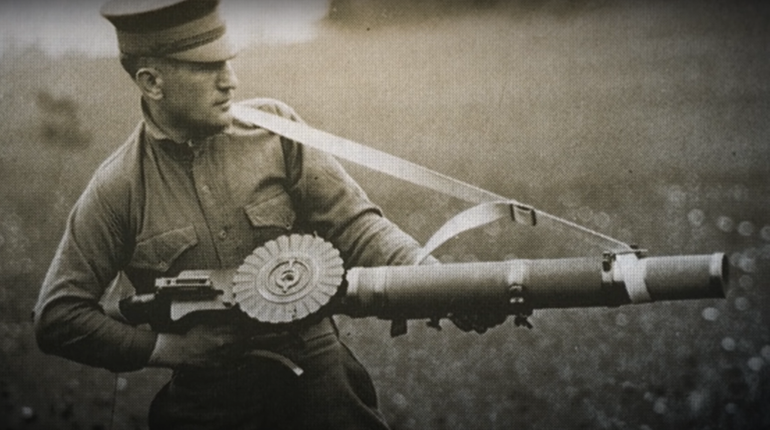

 Young 2nd Lt. Donald Simpson Bell knew he had to act quickly. The attack was losing momentum as heavy enfilading fire swept across the lead company. If somebody didn’t do something about it, the effort might fail and comrades might unnecessarily lose their lives. It was Wednesday, July 5, 1916, and Bell’s regiment was fighting in an area known as “Horseshoe Trench” 1 mile east of the village of La Boisselle in Northern France. Clearly, the source of the unexpected flanking fire had to be dealt with so, completely of his own initiative, he crept up to a communication trench leading two other soldiers. They then rushed across the open stretch of “no-man’s-land” under heavy fire from the German MG-08 that was enfilading the attacking company. Despite the enemy’s best efforts to stop them, the three men made it through the hail of machine-gun bullets and moved-in close enough to attack the position at close quarters. The 25-year-old Lieutenant led the way armed only with a fragmentation grenade in one hand and a .455-caliber Webley Mk. V revolver in the other. Before the German gunner had time to react, Bell shot him dead with the Webley. Then, using several well-placed hand grenades, he destroyed the troublesome machine gun once and for all. This conspicuous act of bravery not only ensured the success of the faltering attack; it also saved the lives of many of the regiment’s men.
Young 2nd Lt. Donald Simpson Bell knew he had to act quickly. The attack was losing momentum as heavy enfilading fire swept across the lead company. If somebody didn’t do something about it, the effort might fail and comrades might unnecessarily lose their lives. It was Wednesday, July 5, 1916, and Bell’s regiment was fighting in an area known as “Horseshoe Trench” 1 mile east of the village of La Boisselle in Northern France. Clearly, the source of the unexpected flanking fire had to be dealt with so, completely of his own initiative, he crept up to a communication trench leading two other soldiers. They then rushed across the open stretch of “no-man’s-land” under heavy fire from the German MG-08 that was enfilading the attacking company. Despite the enemy’s best efforts to stop them, the three men made it through the hail of machine-gun bullets and moved-in close enough to attack the position at close quarters. The 25-year-old Lieutenant led the way armed only with a fragmentation grenade in one hand and a .455-caliber Webley Mk. V revolver in the other. Before the German gunner had time to react, Bell shot him dead with the Webley. Then, using several well-placed hand grenades, he destroyed the troublesome machine gun once and for all. This conspicuous act of bravery not only ensured the success of the faltering attack; it also saved the lives of many of the regiment’s men.

The sequence of events that delivered Donald Simpson Bell to his moment of truth in the trenches of Picardie that day began almost 2 years earlier. Before the outbreak of the Great War, he was a professional footballer, but gave up that lifestyle when he enlisted in the British Army in 1914. Eventually assigned to the 9th Battalion of the Yorkshire Regiment, Bell received rapid promotions to Lance Corporal and then, ultimately, his commissioning. By mid-1916, he was a combat-experienced junior officer who was about to be swept into the middle of one of the most infamous battles in military history: the Battle of the Somme.

It started on July 1, 1916, when Anglo-French armies launched a major offensive against the German Second Army on the north and south banks of the River Somme in the vicinity of the city of Péronne. On the first day, the French made modest gains on the southern end of the battlefront, but the British effort to the north rapidly descended into disaster. Under intense German small arms and artillery fire, losses quickly climbed to levels that had not been seen before. By the end of the day on July 1st, the British had suffered 57,000 killed, wounded and missing. It remains the worst single day in the history of the British Army, yet the battle would continue for an additional 141 days. Donald Simpson Bell’s successful attack against the machine-gun position east of La Boisselle took place on the fifth day of the Somme Offensive and it stood out immediately as an exceptional example of courage and intrepidity. Nevertheless, he downplayed the action, describing it in a letter he wrote to his mother the next day as a “fluke.” On the tenth day of the Battle of the Somme, Bell took on a German redoubt just south of the village of Contalmaison using, once again, only grenades and his Webley Mk. V. By then, though, his luck had run out, and he was killed during the attack. He thus became but one of the more than one million casualties of the Somme. However, on Sept. 9, 1916, he was posthumously awarded the Victoria Cross—a distinction that keeps his memory alive a century later. The spot in Contalmaison where his young life ended is now named “Bell’s Redoubt” and a memorial at the site remembers what happened there that Monday afternoon 100 years ago. He is buried one mile away in plot IV.A.8 of Gordon Dump Cemetery in what is now known as Ovillers-la-Boisselle.
Donald Simpson Bell’s successful attack against the machine-gun position east of La Boisselle took place on the fifth day of the Somme Offensive and it stood out immediately as an exceptional example of courage and intrepidity. Nevertheless, he downplayed the action, describing it in a letter he wrote to his mother the next day as a “fluke.” On the tenth day of the Battle of the Somme, Bell took on a German redoubt just south of the village of Contalmaison using, once again, only grenades and his Webley Mk. V. By then, though, his luck had run out, and he was killed during the attack. He thus became but one of the more than one million casualties of the Somme. However, on Sept. 9, 1916, he was posthumously awarded the Victoria Cross—a distinction that keeps his memory alive a century later. The spot in Contalmaison where his young life ended is now named “Bell’s Redoubt” and a memorial at the site remembers what happened there that Monday afternoon 100 years ago. He is buried one mile away in plot IV.A.8 of Gordon Dump Cemetery in what is now known as Ovillers-la-Boisselle.




































